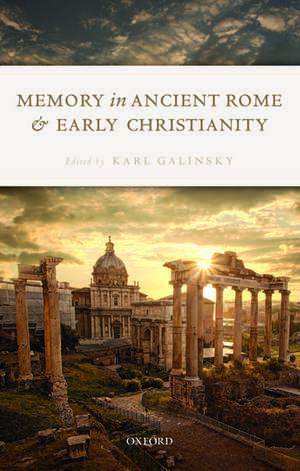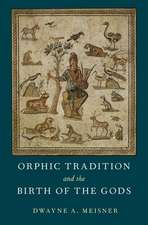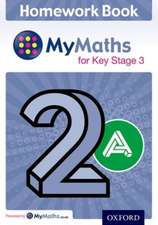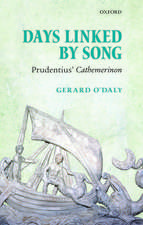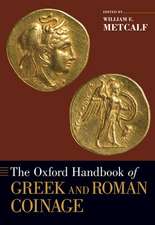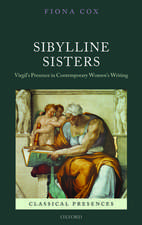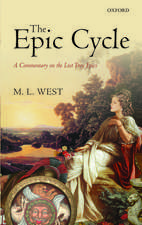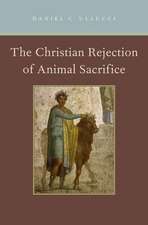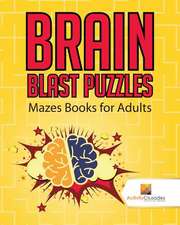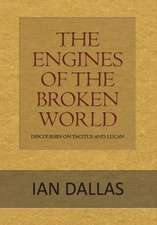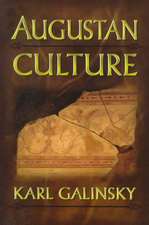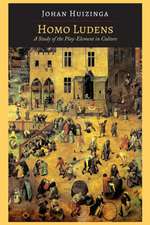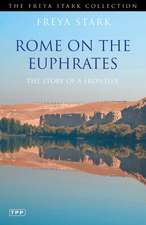Memory in Ancient Rome and Early Christianity
Editat de Karl Galinskyen Limba Engleză Paperback – 19 apr 2018
| Toate formatele și edițiile | Preț | Express |
|---|---|---|
| Paperback (1) | 198.26 lei 31-37 zile | |
| OUP OXFORD – 19 apr 2018 | 198.26 lei 31-37 zile | |
| Hardback (1) | 877.86 lei 31-37 zile | |
| OUP OXFORD – 17 dec 2015 | 877.86 lei 31-37 zile |
Preț: 198.26 lei
Preț vechi: 242.89 lei
-18% Nou
Puncte Express: 297
Preț estimativ în valută:
37.97€ • 39.12$ • 31.81£
37.97€ • 39.12$ • 31.81£
Carte tipărită la comandă
Livrare economică 11-17 februarie
Preluare comenzi: 021 569.72.76
Specificații
ISBN-13: 9780198822592
ISBN-10: 0198822596
Pagini: 424
Dimensiuni: 141 x 216 x 24 mm
Greutate: 0.53 kg
Editura: OUP OXFORD
Colecția OUP Oxford
Locul publicării:Oxford, United Kingdom
ISBN-10: 0198822596
Pagini: 424
Dimensiuni: 141 x 216 x 24 mm
Greutate: 0.53 kg
Editura: OUP OXFORD
Colecția OUP Oxford
Locul publicării:Oxford, United Kingdom
Recenzii
Karl Galinsky is not a scholar to embrace such rigid or facile dichotomies. In a lifetime of scholarship on Augustus, classical reception, and now, on social memory, Galinsky has consistently and vocally advocated the need to tear down conceptual walls . . . This book succeeds in telling a powerful story . . . anyone who values dialogue -- between science and the humanities, classics and religious studies, or among people of faith learning more about their own religious traditions -- will recognize its implication: memories that have been acquired through learned behavior can, with some difficulty, be unlearned, too.
I found this book very interesting. Galinsky, I believe, has provided historians of Ancient Rome with an intriguing collection of essays on the role of memory. The essays as a whole demonstrate the viability of this field of study.
Similarly, perhaps the most unique and interesting feature of this book is the final essay; one does not frequently encounter neuroscientific discussions of memory, neuronal networks, and brain plasticity in books on Roman or early Christian history! Between these two bookends, Libby's discussion of memory and intertextuality, Hedrick's quadrangular model of memory, history, experience, and fantasy, Stein-Hölkeskamp's prefiguration of the collapse of the Republic in Sulla's take-over of Roman monumental memory, and Denzey Lewis' presentation of a pagan response to the Empire's Christianization stand out as especially read-worthy . . . these essays provide an admirable example of the uses to which historians of antiquity are putting the amorphous field of memory studies.
I found this book very interesting. Galinsky, I believe, has provided historians of Ancient Rome with an intriguing collection of essays on the role of memory. The essays as a whole demonstrate the viability of this field of study.
Similarly, perhaps the most unique and interesting feature of this book is the final essay; one does not frequently encounter neuroscientific discussions of memory, neuronal networks, and brain plasticity in books on Roman or early Christian history! Between these two bookends, Libby's discussion of memory and intertextuality, Hedrick's quadrangular model of memory, history, experience, and fantasy, Stein-Hölkeskamp's prefiguration of the collapse of the Republic in Sulla's take-over of Roman monumental memory, and Denzey Lewis' presentation of a pagan response to the Empire's Christianization stand out as especially read-worthy . . . these essays provide an admirable example of the uses to which historians of antiquity are putting the amorphous field of memory studies.
Notă biografică
Karl Galinsky is Floyd A. Cailloux Centennial Professor of Classics and University Distinguished Teaching Professor at the University of Texas at Austin.
